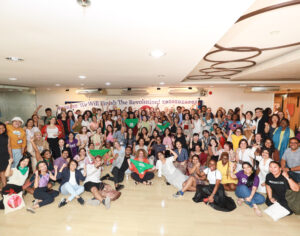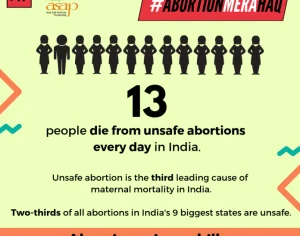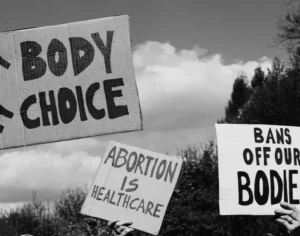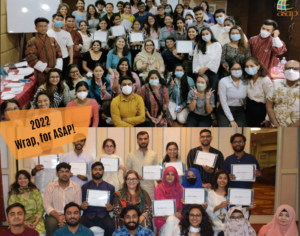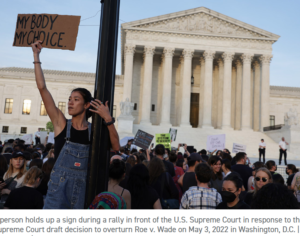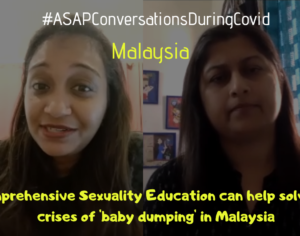Indonesia: Bridging Gaps Between the Law and Its Implementation
In Indonesia, abortion is permitted under several grounds since 2009: to save a woman’s life, in case of fetal impairment, to preserve a woman’s physical health, and in cases of rape. But implementing this law across the major and minor Indonesian islands home to 237 million is an arduous task. Here’s a comprehensive look at abortions in Indonesia, the barriers that remain, and what’s being done to improve the situation.
 Until 2009, abortions laws were very stringent across Indonesia. The lack of access to accurate information, and cultural attitude toward abortion, drove the government to permit abortions only if the pregnancy presented a fatal risk to the mother’s life. Only very few state-run hospitals provided abortion, and few private facilities were approved, limiting access to safe abortions across Indonesia. While women living in the cities of Medan , Batam, Jakarta , Bandung , Yogyakarta, Surabaya , Bali , Mataram, Menado were able to avail of abortion services in an emergency, access was very limited or sometimes unavailable to women living in rural Indonesia. These women often had to resort to getting clandestine aid from untrained, traditional midlives or shamans resulting in thousands of women suffering from morbidities or dying due to unsafe abortions.
Until 2009, abortions laws were very stringent across Indonesia. The lack of access to accurate information, and cultural attitude toward abortion, drove the government to permit abortions only if the pregnancy presented a fatal risk to the mother’s life. Only very few state-run hospitals provided abortion, and few private facilities were approved, limiting access to safe abortions across Indonesia. While women living in the cities of Medan , Batam, Jakarta , Bandung , Yogyakarta, Surabaya , Bali , Mataram, Menado were able to avail of abortion services in an emergency, access was very limited or sometimes unavailable to women living in rural Indonesia. These women often had to resort to getting clandestine aid from untrained, traditional midlives or shamans resulting in thousands of women suffering from morbidities or dying due to unsafe abortions.
While data is not available through the government of Indonesia, the Guttmacher Institute reports an estimated ? total of 2 million abortions in the year 2000. This accounts for 37 abortions for every 1000 women. Though we do not know how many of them were unsafe, a study of the maternal mortality rate shows that unsafe abortions account for 11 to 30% of all maternal deaths, depending on the region and the local access to care providers. The study also shows that 17% of the unwanted pregnancies were because of the unmet needs for contraception. (Read the entire report)
In the aftermath of these studies civil societies, care providers, and advocates demanded a better health care policy for women. Nine years of advocacy paid off in 2009, when the government passed a reformed health care law, with liberalized clauses on abortions. But the law is only three years old, and has not yet been implemented all across Indonesia. Misinformation, abortion stigma, and the lack of equipped facilities still result in limited access to abortion care.
Among the civil societies working toward making safe abortions accessible to all Indonesian women who need them, are the Indonesian Association of Obstetricians and Gynecologists (POGI), and the Women’s Health Foundation (YKP).
Earlier this year, ASAP ensured that Dr. Nurdadi Saleh, the new President of POGI, and Dr. Farouk of Malaysia participated at the meeting of the International Federation of Gynecologists and Obstetricians (FIGO) held in Cambodia, and shed light on the barriers to safe abortions in Eastern Asia.
Dr. Nuradi, presented his goals for Indonesia at the meeting. In the next five years, POGI will aim to improve access to information about safe abortions, prepare guidelines for all caregivers on safe abortions and work to dispel false notions among the Ministry of Health. They particularly hope to help the ministry, policy makers and caregivers understand that an unwanted pregnancy could risk the mental and emotional wellbeing of a woman, and that abortions needs to be made available on those grounds as well. They also hope to work with NGOs to improve access to safe terminations all around Indonesia.
These responsibilities will fall on the shoulders of Dr. Jayadilaga, a senior obstetrician, ex-Director of Raden Saleh Clinic, which was the only clinic permitted to perform safe abortions in the region for several years. Ninuk Widyantoro, ASAP Steering Committee Member, believes that Dr. Jayadilaga is capable of bridging the gap between the law and its implementation, and making safe abortions accessible to the millions of women and girls, who have unwanted pregnancies. ASAP will now work to connect Dr. Jayadilaga with Dr Shahida Zaidi, Regional Coordinator for the FIGO project on Prevention of Unsafe Abortions, in order to facilitate partnerships between POGI and FIGO, and maximize their impact.
In addition to abortions, POGI will work to improve all comprehensive sexual and reproductive health needs for Indonesian women, including access to effective contraception. At the Global Summit on Family Planning last month, the government of Indonesia has committed to formulating an insurance policy that provides modern contraceptives at low costs to the poor women, and free of cost to very poor women in both rural and urban areas. Dr. Agung Laksono, Coordinating Minister for People’s Welfare announced that Indonesia hoped to decrease the fertility from 5.6 to 2.3, and work with civil societies to create mobile family planning services.
While it is important to advocate for policy change, it is also important to work with the women and men in the community to dispel all false notions about abortions, and sexual health. Among the organizations working toward this end is Samsara, founded by a youth advocate, Inna Hudaya. Samsara works to provide sexuality education for young Indonesians, including information about abortions, and post-abortion care. The organizations aims to discuss abortions in an amoral environment, and provides young men and women a platform to make informed decisions about their reproductive lives. Inna will be blogging for us later this month.
In the meantime, please read our detailed profile of abortions in Indonesia.

